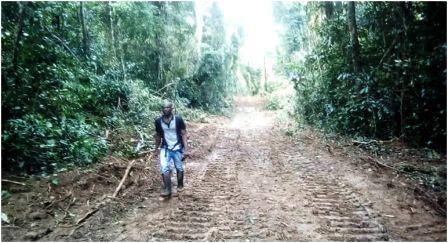Abidjan Convention Area Arms against Climate Change
ABIDJAN 6 Dec 2013 – A new effort to boost government awareness of the need to apply ecosystem- and community-based management methods to reduce the impacts of climate change begins 10 December in Abidjan, Cote d’Ivoire.
The three-day training course brings together some 26 government representatives from the 22 countries within the Abidjan Convention area, which stretches from Mauritania to the western coast of South Africa. The training, organized by the Abidjan Convention Secretariat and funded by the Swedish International Development Cooperation Agency, will provide knowledge, skills and tools required for the application of climate change adaptation measures with particular focus on Ecosystem Based Adaptation (EbA). The training will be conducted by specialists from United Nations Environment Programme headquarters in Nairobi, Kenya, and its office in Geneva.
Some of the ecosystem-based management tools are sustainable management, conservation and restoration of ecosystems that take account of social, economic and cultural co-benefits for local communities. EbA as an approach bolsters the capacity of people and communities to adapt to the knock-on effects of climate on their living and working environment and to increase resilience so they can continue to work, as well as ensure social and political stability. It is these approaches that set EbA apart from other purely technological climate adaptation methods being employed.
Ecosystem-based adaptation methods, then, are designed to protect coasts from storms and help maintain the good and services, which tropical coastal ecosystems such as mangroves, reefs and estuaries provide for some 500 million people worldwide. In the south-eastern Atlantic area of Africa, these services include notably fishing, fuel wood harvesting and tourism. Today, these activities and the ecosystems which harbour them are threatened by climate change and human activity. Increasing coastal populations have led to intensive use of coastal zones which is resulting in degraded water quality and coastal terrestrial vegetation; intensive fishing and coastal developments such as harbours and hotels. If unmanaged, these factors – human and climate-induced change – would push ecosystems beyond their point of recovery, the so-called tipping point, and where they could no longer rapidly change into an alternative state. The result would be reduced biodiversity, value and functionality of these areas and reduced food security.
Given this scenario, and in some areas an unfolding reality, EbA has become a rapidly evolving approach that uses biodiversity and ecosystem services as part of an overall strategy to confront the climatic threat.
Sustainable management, conservation and restoration of ecosystems that take into account the many social, economic and cultural co-benefits for local communities are some of the ecosystem-based management tools of this strategy. Ecosystem-based adaptation underpins the capacity of people to adjust to change and reorganize so they can work, as well as ensure social and political stability.
UNEP says if well implemented, EbA-related projects could “deliver benefits for local communities including food security, shelter, risk reduction, freshwater and medicine supply, and local climate regulation”.
This Abidjan training will complement other efforts made to this end, for example in the upper-end of the Convention area, where three United Nations agencies have been trying to build capacity, design policy measures; and implement EbA measures, notably in Cape Verde, Gambia, Guinea-Bissau, Mauritania and Senegal. The new initiative is helping these countries respond to alterations of their shorelines and their effect on communities by adapting integrated coastal area management that takes into account EbA principles.
Abidjan Convention Secretariat, Abidjan, Côte d’Ivoire
http://www.abidjanconvention.org
Stay with Sierra Express Media, for your trusted place in news!
© 2013, https:. All rights reserved.






